Selling a home can be an exciting yet nerve-wracking experience. As a seller, it’s important to be aware of the various costs associated with the closing process. Understanding these costs will not only help you prepare financially but also ensure a smooth transaction. In this article, we will explore the average closing costs for sellers in Arizona, along with ways you can potentially reduce these costs.
Understanding Closing Costs
Before we delve into the specific costs, let’s first define what closing costs are and why they are important in real estate transactions.
When it comes to the intricate world of real estate transactions, closing costs stand as a significant aspect that requires attention and understanding from both buyers and sellers. These costs encompass a multitude of fees and expenses that come into play during the transfer of ownership of a property. It’s important to note that these costs are not one-size-fits-all and can vary based on the location of the property, the type of transaction, and other factors.
Definition of Closing Costs
Closing costs are fees and expenses that are incurred during the transfer of ownership of a property. These costs are typically paid by both the buyer and the seller and cover various services and legal requirements. While the buyer’s closing costs are more well-known, sellers also have their fair share of expenses.
Buyers often have to deal with costs such as loan origination fees, appraisal fees, title insurance, and escrow fees, among others. On the other hand, sellers may be responsible for covering expenses like real estate agent commissions, transfer taxes, title insurance premiums, and any outstanding liens or judgments on the property. Understanding the breakdown of these costs is essential for both parties to ensure a smooth and transparent transaction.
Importance of Closing Costs in Real Estate Transactions
Closing costs play a crucial role in real estate transactions as they ensure that all necessary legal and financial obligations are met. These costs are typically used to cover services such as title searches, appraisals, insurance, and other administrative tasks. By understanding and planning for these costs, sellers can accurately calculate their net proceeds from the sale.
Closing costs serve as a form of protection for both buyers and sellers. For buyers, these costs provide assurance that the property they are purchasing has a clear title and is free from any legal issues. On the other hand, sellers can rest easy knowing that the transfer of ownership is conducted in a legally compliant manner, reducing the risk of future disputes or complications.
Breakdown of Average Closing Costs in Arizona
Now that we have a better understanding of closing costs in general, let’s take a closer look at the specific costs involved in a real estate transaction in Arizona.
When it comes to selling a property in Arizona, it’s important to be aware of the various expenses that can arise. In addition to the commonly known costs like real estate agent commissions, there are a few other factors that can impact your overall closing costs.
Real Estate Agent Commissions
Real estate agent commissions are one of the most significant costs sellers will incur. In Arizona, the average commission is typically around 5-6% of the sale price. This fee is split between the listing agent and the buyer’s agent. It’s important to carefully consider the commission rates and negotiate them if possible.
However, it’s worth noting that some agents may be willing to negotiate their commission rates based on factors such as the property’s value, market conditions, and the level of service provided. It’s always a good idea to have an open and honest conversation with your agent to explore any potential opportunities for savings.
Title Search Fees
A title search is conducted to ensure that the property being sold has a clean title and to identify any potential issues or liens. In Arizona, title search fees can range from $200 to $500 or more, depending on the complexity of the property’s history. It’s important to factor in this cost as it is essential for a smooth transfer of ownership.
During the title search process, a thorough examination of public records is conducted to verify the ownership history, any outstanding mortgages or liens, and any other encumbrances that may affect the property’s title. This meticulous process helps protect both the buyer and the seller from any unforeseen legal issues that may arise after the transaction is completed.
Escrow Fees
Escrow is a process where a neutral third party holds and distributes funds and documents involved in the real estate transaction. In Arizona, sellers typically pay for the escrow fees, which can range from $300 to $800. These fees cover the administrative costs associated with managing the escrow process.
During the escrow period, the escrow agent ensures that all necessary documents are signed, funds are securely held, and all conditions of the sale are met. This provides a level of security and peace of mind for both the buyer and the seller, as it ensures that the transaction is handled in a fair and impartial manner.
Transfer Taxes
Transfer taxes are fees imposed by the state or local government when the ownership of a property is transferred. In Arizona, the transfer tax is calculated based on the property’s sale price. At the time of writing, the transfer tax rate in Arizona is $2.00 for every $500 of the property’s sale price. This is an important cost to consider as it can significantly impact your net proceeds.
It’s worth noting that transfer taxes can vary from state to state, so it’s important to be aware of the specific rates and regulations in your area. Consulting with a real estate professional or conducting thorough research can help you accurately estimate this cost and avoid any surprises during the closing process.
By understanding the breakdown of average closing costs in Arizona, you can better prepare yourself for the expenses associated with selling a property. Remember to carefully review all the costs involved and consider seeking professional advice to ensure a smooth and financially sound transaction.

Factors Influencing Closing Costs
While the average closing costs in Arizona provide a general idea, it’s important to note that several factors can influence these costs.
Understanding the nuances of closing costs can help you navigate the financial aspects of purchasing a property with clarity and confidence. Let’s delve deeper into the various factors that can impact the overall closing costs, shedding light on the intricacies of real estate transactions.
Property Location
The location of the property can affect the types of services required and, consequently, the associated costs. For example, properties located in counties with stricter regulations may have higher fees for inspections or environmental assessments. It’s important to research the specific requirements in your area to gain a better understanding of the potential costs.
The proximity of the property to essential amenities and infrastructure can also play a role in determining closing costs. Properties located in well-developed neighborhoods with easy access to schools, hospitals, and shopping centers may command higher closing costs due to the increased demand and property values in such areas.
Home Price and Loan Amount
As the sale price of the property increases, so do the closing costs. This is because many fees, such as commissions and transfer taxes, are calculated based on a percentage of the sale price. Additionally, if you have an outstanding mortgage, you may be required to pay off your current loan, which can add to the overall expenses.
The loan amount and the type of financing chosen can impact the closing costs. Different loan programs have varying fee structures and requirements, which can influence the final amount due at closing. It’s essential to consider these factors when budgeting for the purchase of a property to avoid any last-minute financial surprises.
Negotiations Between Buyer and Seller
In some cases, buyers and sellers may negotiate who pays for certain closing costs. It’s important to carefully review the terms of the purchase agreement and discuss the allocation of costs with the buyer. By effectively negotiating, you may be able to reduce your financial obligations.
Open communication and a willingness to collaborate with the other party can lead to mutually beneficial agreements regarding the distribution of closing costs. Understanding your rights and responsibilities as a buyer or seller can empower you to advocate for a fair and transparent transaction, ensuring a smoother closing process for all parties involved.
Ways to Reduce Closing Costs
While closing costs are inevitable, there are ways sellers can potentially reduce these expenses.
When it comes to reducing closing costs, sellers have several strategies at their disposal. One effective method is to consider handling some of the tasks typically paid for by the buyer. By taking on responsibilities such as home inspections or repairs, sellers may be able to negotiate a lower selling price, which can help offset some of the closing costs.
Shopping Around for Services
One of the best ways to minimize closing costs is to shop around for services. Get quotes from multiple real estate agents, title companies, and other service providers. By comparing prices and negotiating fees, you may be able to find more cost-effective options without compromising on quality.
Additionally, sellers can explore the option of bundling services to secure discounts. Some real estate agencies offer package deals that include various services at a reduced rate. By opting for these bundled services, sellers can potentially save money on individual service costs.
Negotiating with the Buyer
As mentioned earlier, negotiation with the buyer can play a significant role in determining who pays for specific closing costs. By openly discussing and reaching agreements on cost allocation, both parties can potentially save money. However, it’s crucial to approach these discussions with transparency and fairness.
Sellers can consider offering incentives to buyers to cover certain closing costs. For example, providing a home warranty or covering the cost of the first year’s homeowners association fees can be appealing to buyers and help offset some of the closing expenses.
Timing Your Sale
The timing of your sale can also impact your closing costs. For instance, if you choose to sell during a slow real estate market or offseason, you may have more leverage to negotiate lower commission rates or reduced fees from service providers. It’s advisable to consult with a real estate professional to determine the best timing for your specific situation.
Sellers can explore the option of prepaying certain expenses to reduce closing costs. By taking care of items such as property taxes or homeowners insurance upfront, sellers can potentially lower the amount due at closing. However, it’s essential to carefully review the terms of prepayment to ensure it aligns with your financial goals and timeline.
Conclusion
As a seller in Arizona, it’s important to be aware of the average closing costs associated with selling a home. By understanding these costs and the factors that influence them, you can better prepare yourself financially. Additionally, exploring ways to reduce closing costs, such as shopping around for services and negotiation, can help you maximize your net proceeds from the sale. Remember to consult with experienced professionals to guide you through the process and ensure a smooth closing.






